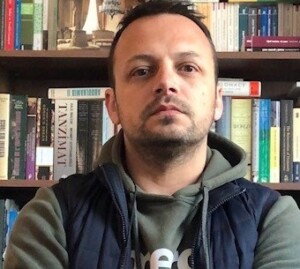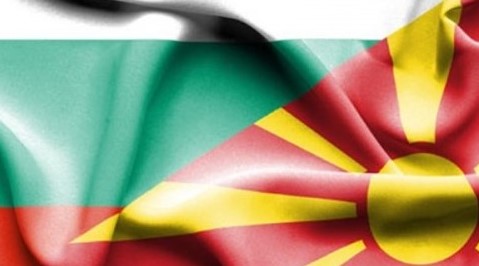Barely 1% of Macedonians consider Bulgaria a friendly nation, and around 80% of Bulgarians are hoping that the Bulgarian government would veto the beginning of Macedonian EU accession negotiations. The question of Macedonian-Bulgarian relationships is slowly leaving the space of conflict between elites, and entering the space of a conflict between nations. Political analysts consider that the current situation brings into question the European future of the Balkans.

Writen by: Petar Todorov
History, or rather a dispute over ‘historical truths’ seems to have returned as the burning topic of the Macedonian-Bulgarian relations. If they have done this in a Marxist context some 30 years ago, it is now being done in a European one.
Accusations and slander are being exchanged, and the latest research shows that barely 1% of Macedonians consider Bulgarians a friendly nation, and around 80% of Bulgarians are hoping that the Bulgarian government would veto the beginning of Macedonian EU accession negotiations. Anyone aware of the Macedonian-Bulgarian history will recognise something similar in their own society. Everyone has their own historical nemesis, always there to ‘help’ when real problems need forgetting.
What can be done in order to make a difference, when institutional support is lacking? There are many initiatives led by historians and those who deal with the past in one way or another – scientific projects, debates, declarations, media events, commissions for history textbooks and so on. All of these activities yield results – maybe not the expected results, but they do raise consciousness about different perspectives, a depoliticisation of the past, and the democratisation processes. What we are missing are cooperation, solidarity among intellectuals, activists, politicians and all those who are opposing a politicisation of history and its abuse to serve political and nationalist purposes. Unfortunately, it is very difficult to mobilise Macedonian historians, activists and intellectuals in, say, Bosnia and Herzegovina. Not to mention war crimes and the war legacies that came after the fall of socialist Yugoslavia. To Macedonians, that is an issue of Bosniaks, Croats, and Serbs, not Macedonians. I believe that citizens of Bosnia and Herzegovina are also unaware of the issues the Macedonian society is facing, beyond the superficial media coverage, if that. That is a result of the general state of our little states, and it speaks for a lack of empathy and solidarity, and lack of support within liberal and democratic circles.
To get back to the Macedonian-Bulgarian issue. In the past two months, this has become a question of political survival, an essential question which is slowly leaving the space of conflict between elites, and is now becoming a conflict between two nations. Political analysts consider that the current situation brings into question the European future of the Balkans. The only responses have come from historians in Bulgaria, and some from Macedonia. Two or three experts have also voiced their opinions, from Germany and Austria. The silence of many historians, intellectuals, and organisations dealing with these questions not only in Macedonia and Bulgaria but in other Balkan and European countries, speaks louder than words. Almost similar to the negations of the Srebrenica genocide, many intellectuals in Macedonia are commenting from their offices and cafes, how the situation is not very good. The role of the intellectual isn’t to simply limit their work to writing articles and communicating their ideas to a like-minded few. There is a lack of support of state institutions, and therefore we need greater activity and solidarity, and a stronger platform for the voices of all of those who represent the ideas of democracy and reconciliation, and who are opposing an abuse of the past to serve political and nationalist agendas.
Petar Todorov is a historian at the National History Institute in Skopje. From 2018, he has been a member of the Joint Commission for Historical and Educational Issues between North Macedonia and Bulgaria



Leave A Comment